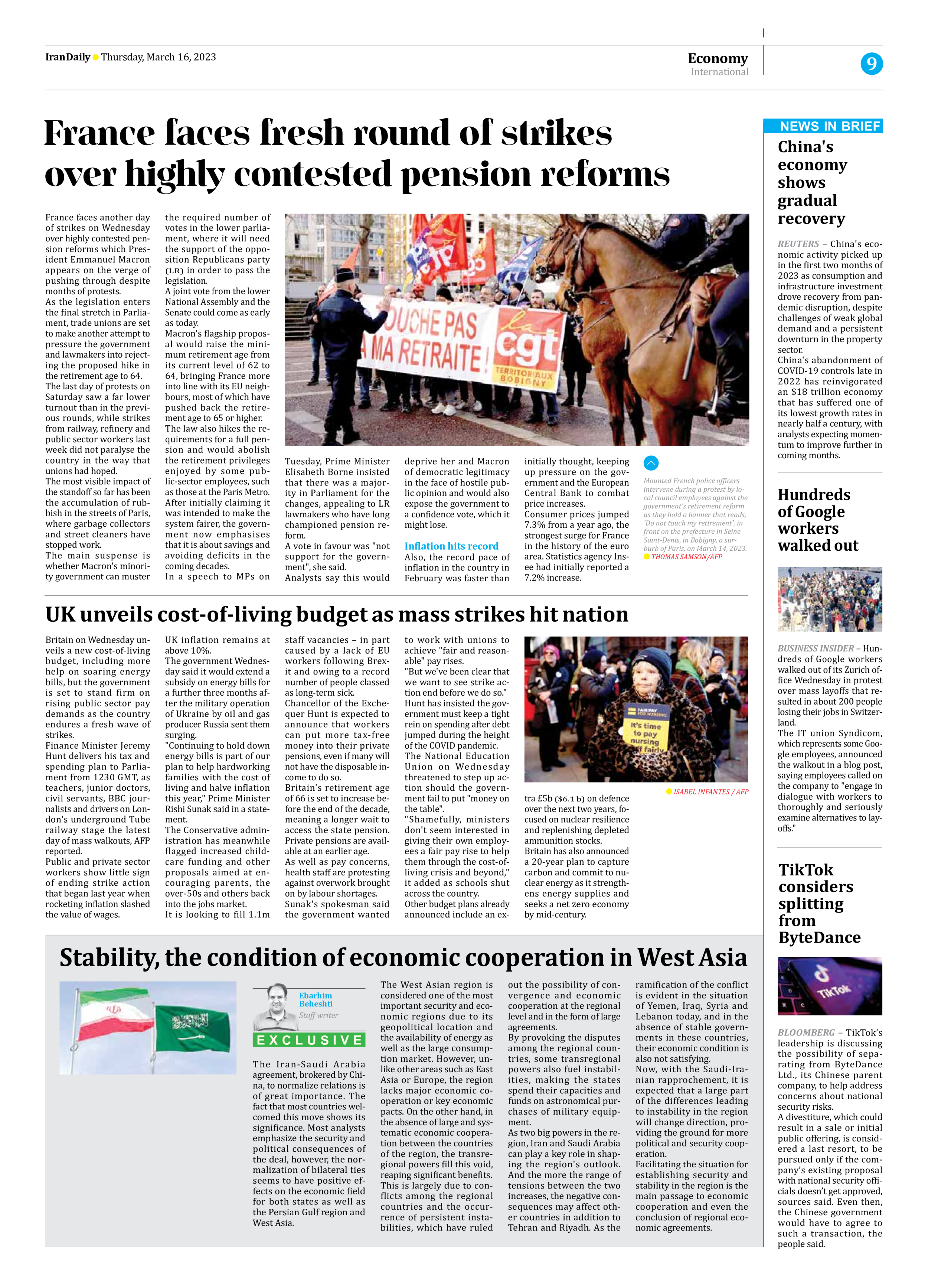
France faces fresh round of strikes over highly contested pension reforms
France faces another day of strikes on Wednesday over highly contested pension reforms which President Emmanuel Macron appears on the verge of pushing through despite months of protests.
As the legislation enters the final stretch in Parliament, trade unions are set to make another attempt to pressure the government and lawmakers into rejecting the proposed hike in the retirement age to 64.
The last day of protests on Saturday saw a far lower turnout than in the previous rounds, while strikes from railway, refinery and public sector workers last week did not paralyse the country in the way that unions had hoped.
The most visible impact of the standoff so far has been the accumulation of rubbish in the streets of Paris, where garbage collectors and street cleaners have stopped work.
The main suspense is whether Macron's minority government can muster the required number of votes in the lower parliament, where it will need the support of the opposition Republicans party (LR) in order to pass the legislation.
A joint vote from the lower National Assembly and the Senate could come as early as today.
Macron's flagship proposal would raise the minimum retirement age from its current level of 62 to 64, bringing France more into line with its EU neighbours, most of which have pushed back the retirement age to 65 or higher.
The law also hikes the requirements for a full pension and would abolish the retirement privileges enjoyed by some public-sector employees, such as those at the Paris Metro.
After initially claiming it was intended to make the system fairer, the government now emphasises that it is about savings and avoiding deficits in the coming decades.
In a speech to MPs on Tuesday, Prime Minister Elisabeth Borne insisted that there was a majority in Parliament for the changes, appealing to LR lawmakers who have long championed pension reform.
A vote in favour was "not support for the government", she said.
Analysts say this would deprive her and Macron of democratic legitimacy in the face of hostile public opinion and would also expose the government to a confidence vote, which it might lose.
Inflation hits record
Also, the record pace of inflation in the country in February was faster than initially thought, keeping up pressure on the government and the European Central Bank to combat price increases.
Consumer prices jumped 7.3% from a year ago, the strongest surge for France in the history of the euro area. Statistics agency Insee had initially reported a 7.2% increase.







